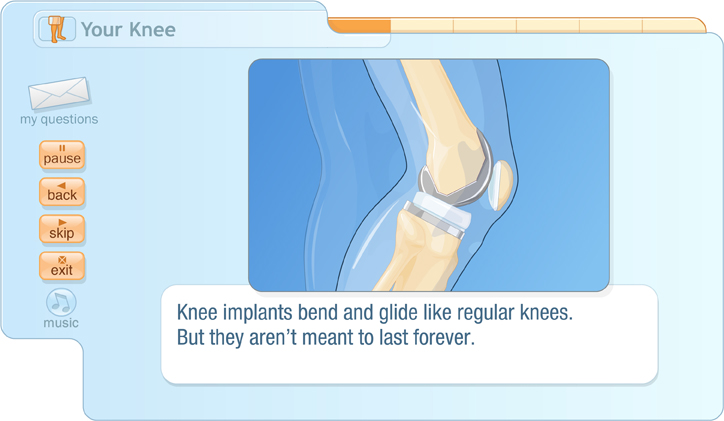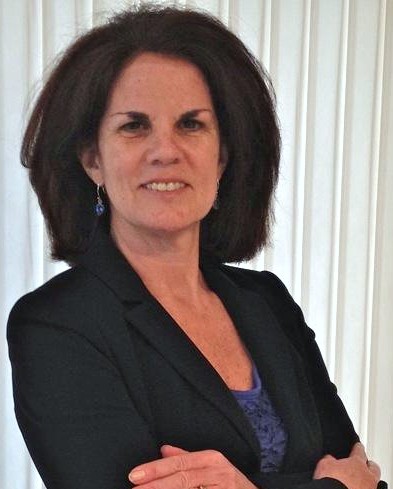 In October 2012, Mercy Hospital Springfield of Missouri, and two other health systems launched a Centers of Excellence program with a major retailer to provide spine care for associates and their family members covered by the company’s medical plans. When an associate chooses to receive care at a Center of Excellence, they do not pay any out-of-pocket costs. In addition, the retailer picks up the tab for travel, lodging and food for the patient and caregiver. Mercy was chosen based on three factors: ethics, quality and value. Mercy Hospital is a Stage 6 Hospital in the HIMSS Analytics EMR Adoption Model (EMRAM).
In October 2012, Mercy Hospital Springfield of Missouri, and two other health systems launched a Centers of Excellence program with a major retailer to provide spine care for associates and their family members covered by the company’s medical plans. When an associate chooses to receive care at a Center of Excellence, they do not pay any out-of-pocket costs. In addition, the retailer picks up the tab for travel, lodging and food for the patient and caregiver. Mercy was chosen based on three factors: ethics, quality and value. Mercy Hospital is a Stage 6 Hospital in the HIMSS Analytics EMR Adoption Model (EMRAM).
The following October, Mercy Hospital Springfield added another contract with the Pacific Business Group on Health (PBGH), which includes large employers like Walmart and Lowe’s. This agreement established a Center of Excellence for knee and hip replacements.
With patients coming in from other parts of the country for various procedures, it became apparent to Mercy that patients needed some information before arriving in Springfield, Missouri. “One of the challenges that we addressed was how to effectively deliver patient education and a good patient experience when the patient is not in front of us,” explained Pam Holt, director of Patient Education and Care Management at Mercy. “We needed a way to empower remote patients with information about what will happen and what to expect during their surgery. Easing patients’ anxiety and ensuring they are comfortable is a top priority for us.”
 Mercy selected EmmiEngage, a patient engagement solution which provides an interactive health information platform certified for Stage 2 Meaningful Use for Patient-Specific Education. Each patient in the Destination Program receives an email from Mercy. The email contains a unique link enabling access via the web or mobile to customized videos with simplified medical information. Patients can view the videos many times and share them with friends and family. “Some of our older patients may go to their adult children’s homes because they don’t have a computer or they just want to watch the video together,” said Holt. “Plus, the back-end system allows our clinicians to know if patients have reviewed the educational information. If they have not, we’ll reach out to ensure the patient gets that prior education and is prepared for surgery.”
Mercy selected EmmiEngage, a patient engagement solution which provides an interactive health information platform certified for Stage 2 Meaningful Use for Patient-Specific Education. Each patient in the Destination Program receives an email from Mercy. The email contains a unique link enabling access via the web or mobile to customized videos with simplified medical information. Patients can view the videos many times and share them with friends and family. “Some of our older patients may go to their adult children’s homes because they don’t have a computer or they just want to watch the video together,” said Holt. “Plus, the back-end system allows our clinicians to know if patients have reviewed the educational information. If they have not, we’ll reach out to ensure the patient gets that prior education and is prepared for surgery.”
When traveling for care, it is particularly important for patients to prepare for discharge before hopping on the airplane. “For example, if their bedroom is upstairs, they may want to use a spare bedroom downstairs during their recovery,” Holt explains. “This information helps them think about their needs ahead of time. In fact, that’s good preparation for all of our patients, which is why we use this tool for patients who are local as well those who travel here.”
EmmiEngage provides a personalized informative overview. It is not intended to take the place of conversations between the patient and their doctor, but instead supports the relationship between them. “At Mercy, we view the solution as a technology to relay ‘general treatment’ information in an approach that suits patients’ learning style. However, we know that each patient has a unique set of circumstances that will impact their surgery and only their doctor can deliver those specific instructions,” described Holt.
Patient Related Measures
Mercy greatly values patient feedback and the responses to the program reinforces the belief that this approach is working.
“I was very impressed with the presentation! It was most helpful. Some things I already knew and it gave me some new ideas of what I can do to help myself. I have a lot more questions I will be asking my doctor the next time I see him.”
“The video was very informative and insightful. I feel I am going into this procedure with a better understanding of the procedure I am facing.”
“Rather enjoyed knowing what will happen and the risk involved. Very helpful overall”.
In addition to qualitative feedback, Mercy monitors specific patient related success measures. “We know that 85% of patients are consuming educational content through their portal. Ten percent have asked questions and 15% have contacted their doctors after reviewing the educational information. From a patient experience standpoint, 80% of patients report that the portal programs answered questions that the patient would have asked their doctor,” Holt added.
Mercy clinicians also value using technology to support patients prior to their surgery. “Patients who view a program are more prepared for their procedure and have a better understanding of their health. The benefit is two-fold: it pays off in saved clinic time and helps the patient feel more comfortable about their care,” concluded Dr. John Brown, Mercy Family and Travel Medicine.
Patient education is a key component of Meaningful Use Stage 2 but also there is growing evidence that effective patient education can impact patient outcomes as well as improve patient engagement and satisfaction. Providing these tools for patients, whether remote or local, as part of a risk sharing agreement or through traditional reimbursement, is an effective approach to patient engagement.
 Motivation for health and wellness,
Motivation for health and wellness,  care collaboration,
care collaboration,  educating consumers about health and wellness,
educating consumers about health and wellness,  family ehealth engagement,
family ehealth engagement,  online health and wellness support,
online health and wellness support,  patient education,
patient education,  patient ehealth engagement,
patient ehealth engagement,  personalization for health and wellness in
personalization for health and wellness in  Behavior Change Health & Wellness,
Behavior Change Health & Wellness,  Connected Health,
Connected Health,  Data Driven Health Engagement,
Data Driven Health Engagement,  Decision Support eHealth,
Decision Support eHealth,  Mobile Engagement Health & Wellness,
Mobile Engagement Health & Wellness,  Patient Decision Support,
Patient Decision Support,  Patient Engagement,
Patient Engagement,  Personalization eHealth,
Personalization eHealth,  shared decision making ehealth
shared decision making ehealth 



Reader Comments